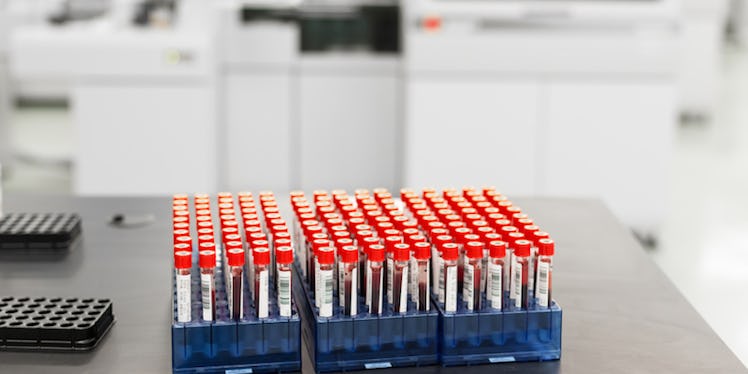British scientists have some fantastic news for the reported 36.7 million people living with HIV around the world. A promising clinical trial has scientists feeling optimistic that they might have found a cure for the currently incurable virus.
According to the Sunday Times, a 44-year-old British man was the first of 50 HIV-positive patients to complete the trial of treatment put together by scientists and doctors from five of Great Britain's most prestigious universities.
And guess what? Tests conducted on the patient show that the virus is now completely out of his system.
It's obviously still very early, but people in the medical field are amped about this. I mean, how could they not be? It's a concrete step toward actually finding a cure for HIV. This is HUGE, you guys.
Mark Samuels, from the National Institutes of Health, gave us an idea of just how huge this breakthrough is when he spoke to the Times regarding the matter:
This is one of the first serious attempts at a full cure for HIV. We are exploring the real possibility of curing HIV. This is a huge challenge and it's still early days but the progress has been remarkable.
The Guardian reports that the treatment works by using a combination of drugs, along with a special vaccination that urges the immune system to destroy infected cells.
They're also careful to point out that, while the drugs we're using right now work when it comes to keeping the virus suppressed, they cannot completely cure it.
Why not? Well, HIV is a sneaky mofo. The virus can hide from the immune system, where even the most advanced modern testing can't find it. As a result, it remains resistant to therapy.
Thus, the new treatment works by tricking the virus into coming out of its hiding places, so the body's immune system can finally attack it.
Let's hope this one man's successful trial is the first of many!
Citations: Scientists Have Taken a Big Step Toward Curing HIV (Jezebel), British scientists on brink of HIV cure (The Times), Scientists testing HIV cure report 'remarkable' progress after patient breakthrough (The Guardian)
